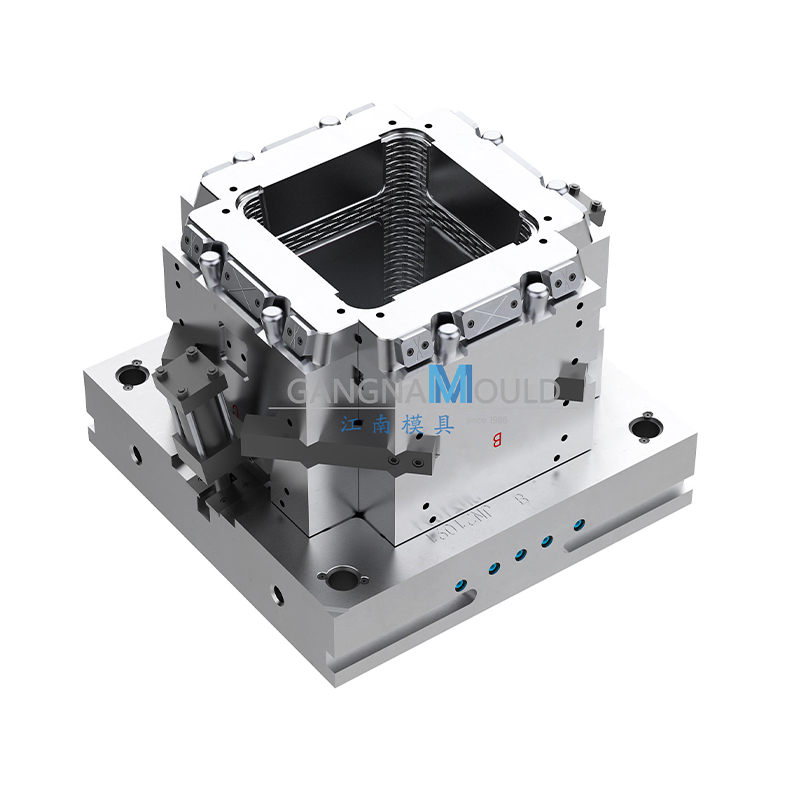Plastic Stackable Folding Stool Mould for Home and Commercial Use
Plastic stackable folding stool moulds are essential tools for manufacturing practical, space-saving seating solutions. These moulds are designed to produce stools that are lightweight, durable, and easy to store.
A plastic stackable folding stool mould is a specialised tool used to produce stools that are both foldable and stackable, offering practical seating solutions for homes, offices, and public spaces. The mould is designed with precision to ensure uniform dimensions, smooth surfaces, and stable folding mechanisms. Made from durable steel, it allows for repeated production of high-quality stools using materials like polypropylene or high-density polyethene. The mould supports efficient manufacturing, reduces material waste, and ensures consistent product quality. Stools produced with this mould are lightweight, easy to store, and versatile, making them ideal for space-saving and portable seating needs.
The design of a plastic stackable folding stool mould focuses on precision and functionality. The mould ensures that each stool produced has uniform dimensions, stable legs, and smooth surfaces. Proper engineering of the mould is critical to guarantee that the folding mechanism operates smoothly and that stacked stools fit securely without slipping. Typically, these moulds are made from high-quality steel, providing long-lasting durability and consistent performance even after repeated use.
Material selection is an important consideration for producing plastic stools. Commonly used plastics include polypropylene (PP) and high-density polyethene (HDPE), which provide a good balance of strength, flexibility, and resistance to wear. The plastic is heated and injected into the mould under high pressure, filling the cavity completely to capture all structural details. After cooling, the stool is ejected from the mould, ready for quality inspection and assembly if needed. Well-designed moulds small material waste and reduce production time, contributing to cost-effective manufacturing.
Folding stools produced from these moulds are highly versatile. The folding mechanism allows the stool to be collapsed when not in use, saving storage space and making transportation easier. Stackable stools can be piled on top of each other to further reduce space requirements, which is particularly valuable for commercial settings like restaurants, event halls, or schools. The mould also enables the production of stools with ergonomically designed seats, enhancing user comfort while maintaining stability and strength.
Safety and durability are key aspects of the stool’s design. Moulds are engineered to ensure that the legs and hinges can withstand regular use without deforming or breaking. Reinforcements may be integrated into the mould to strengthen load-bearing areas and prevent structural weaknesses. Surface finishes are also controlled during moulding to avoid rough edges or defects that could cause discomfort or injury.
In addition to functional aspects, these moulds allow customization options. Manufacturers can produce stools in various colors and textures, catering to different consumer preferences and interior design requirements. Some moulds even enable the incorporation of decorative patterns or non-slip surfaces on the seat, adding aesthetic appeal and practicality to the finished product.
Maintenance and efficiency of the mould are important for long-term production. Regular cleaning, lubrication, and inspection ensure that the mould continues to perform accurately, reducing downtime and maintaining consistent product quality. High-quality plastic stackable folding stool moulds are designed for repeated use, providing reliable output over thousands of cycles.
In conclusion, plastic stackable folding stool moulds are indispensable in modern furniture production. They enable the creation of stools that combine functionality, portability, and durability.




 English
English русский
русский Español
Español Français
Français عربى
عربى 简体中文
简体中文




